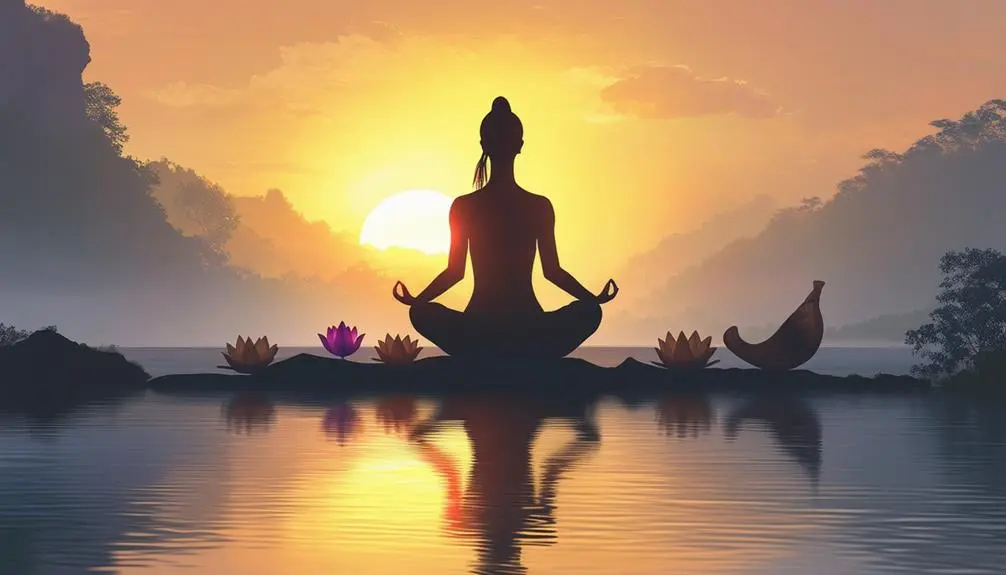The Cause of Suffering: The 5 Kleshas
Suffering is an inherent aspect of human life. Yet, with great skill and awareness, we can choose how much and how deeply we suffer. Both the ancient yogis and the Buddhists point to the kleshas, the five poisons or afflictions, as the cause of our suffering. These “afflictions” distort our minds and our perceptions affecting how we think, act, and feel. The five main kleshas vary in intensity on our psyche, from being trivial in their effect to utter blindness. The kleshas not only create suffering, but the ancient yogis tell us that they bind us to the endless cycle of birth and rebirth, and thus preventing us from achieving enlightenment.
What are the 5 kleshas?
The Sanskrit word klesha translates to “poison” or “affliction.” This term is used to denote specific negative mental patterns that obscure our true nature. The kleshas are considered the cause of suffering in yogic and Buddhist philosophy and are to be actively overcome. The five Kleshas are Avidya (ignorance), Asmita (egoism or I-am-ness), Raga (attachment), Dvesha (repulsion and aversion), and Abhinivesha (fear of death and the will to live).
Viewing ads supports YogaBasics. Remove ads with a membership. Thanks!
- Avidya (ignorance) is the misconception of our true reality, believing that the temporary is eternal, the impure is the pure, and pleasure to be painful. This false and distorted representation of reality is the primary klesha. From avidya the four other kleshas emerge.
- Asmita (I-am-ness) is the identification of ourselves with our ego. We create a self-image of ourselves that we believe is us, but it is not us. This self-image can contain both external (I am poor) and internal (I am a bad person) false projections. We become trapped within the projections we have created of our life.
- Raga (attachment) is the attraction for things that bring satisfaction to oneself. Our desire for pleasurable experiences creates mindless actions and blind-sighted vision. When we cannot obtain what we desire, we suffer. When we do obtain what we desire, our feelings of pleasure soon fade and we begin our search for pleasure again, becoming trapped in an endless cycle.
- Dvesha (repulsion) is the opposite of raga, aversion towards things that produce unpleasant experiences. If we cannot avoid the things we dislike, we suffer. Even thinking about unpleasant experiences produces suffering.
- Abhinivesha (will to live) is the deepest and most universal klesha, remaining with us until our deaths. We know that one day we will indeed die, yet our fear of death is deeply buried in our unconsciousness.
Overcoming the kleshas
The first stage of working with the kleshas is to simply acknowledge them. Reflection promotes self-awareness, self-understanding, and self-knowledge to uncover and see the kleshas and their roots as well as how they create suffering. By simply shining the light of your awareness to these dark places will lesson their powers of suffering.
The focused use of basic yogic techniques can counteract simple kleshas. Gross kleshas are overcome with meditation, tapas and seeking wisdom. Yogic techniques are said to burn away the impurities of the kleshas to purify the mind. Cultivating Pramana Vritti (the mental state of right knowledge through direct perception, inference, and trustworthy testimony) is a powerful tool to overcome more potent kleshas.
As you work with overcoming your kleshas, make mental or written notes on what you find to be the best methods. Then when you next encounter the same or similar mental poison you will already have the antidote.
Yogis believe that there is a calm, peaceful, and pure awareness residing deep within all beings. By ridding ourselves of our kleshas, we are able to clearly see the reality of the world and to let our true nature shine brightly.






